We are excited to welcome new Associate Editor Sandeep Verma (Indian Institute of Technology Kanpur) to the ChemComm Editorial Board.
Sandeep Verma holds the positions of Professor of Chemistry and Shri Deva Raj Endowed Chair Professor at the Department of Chemistry, Indian Institute of Technology Kanpur, which he joined in 1997. His work has been recognized by numerous awards such as Swarnajayanti Fellowship (2005), Shanti Swarup Bhatnagar Prize in Chemical Sciences (2010), Department of Atomic Energy-Science Research Council Outstanding Investigator Award (2012), Ranbaxy Research Award in Pharmaceutical Sciences (2013), J C Bose National Fellowship (2013), Silver Medal, Chemical Research Society of India (2017), and National Prize for Research on Interfaces between Chemistry and Biology (2017).
His main research interests include peptide/protein assemblies for disease modeling, soft biomaterials, bioimaging, and surface chemistry of metal complexes. In particular, his group focuses on heterogeneous catalysts designed by developing polymeric templates based on nucleobase frameworks for application to interesting chemical and biochemical reactions. His work also focuses on the construction of architectures mimicking biological assemblies and metal-organic frameworks.
As a ChemComm, Sandeep will be handling submissions to the journal in the above areas. Why not submit your next paper to his Editorial Office?
Read Professor Verma’s recent articles published in ChemComm and its sister journals:
Chemical sensing in two dimensional porous covalent organic nanosheets
Gobinda Das, Bishnu P. Biswal, Sharath Kandambeth, V. Venkatesh, Gagandeep Kaur, Matthew Addicoat, Thomas Heine, Sandeep Verma and Rahul Banerjee
Chem. Sci., 2015, 6, 3931-3939
Organostannoxane-supported nucleobase arrays: synthesis and supramolecular structures of polymeric and molecular organotin complexes containing guanine, uracil and 2-aminopurine
Subrata Kundu, N. Nagapradeep, Balaram Mohapatra, Sourav Biswas, Sandeep Verma and Vadapalli Chandrasekharn
CrystEngComm, 2016, 18, 4807-4817
Assembly, postsynthetic modification and hepatocyte targeting by multiantennary, galactosylated soft structures
Anisha Thomas, Akansha Shukla, Sri Sivakumarb and Sandeep Verma
Chem. Commun., 2014, 50, 15752-15755


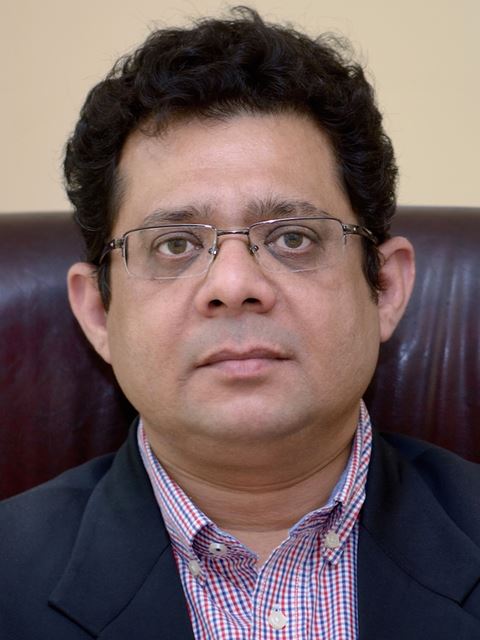















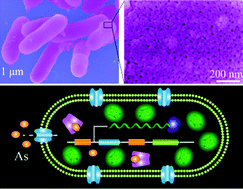

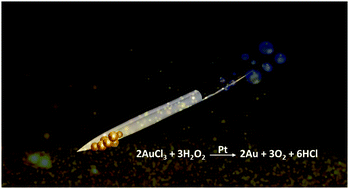
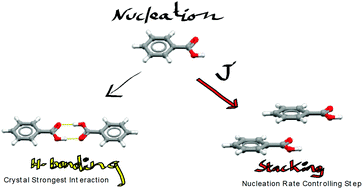
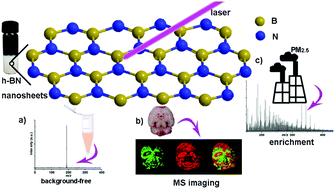
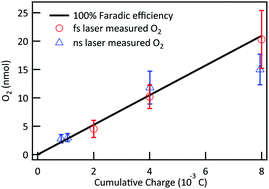
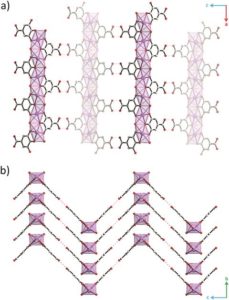


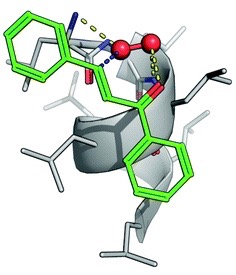 Computational analysis was used to model the PLL supramolecular catalyst and rationalise the observed reaction trends. PLL adopts a helical conformation with hydrophobic grooves distributed along the helical axis. When modelled with substrate 1 (Table), it was observed that the chalcone moiety fits perfectly within the PLL groove and forms a stable complex. It is this complexation that also aids in solubility of the ketone, removing the need for an organic co-solvent.
Computational analysis was used to model the PLL supramolecular catalyst and rationalise the observed reaction trends. PLL adopts a helical conformation with hydrophobic grooves distributed along the helical axis. When modelled with substrate 1 (Table), it was observed that the chalcone moiety fits perfectly within the PLL groove and forms a stable complex. It is this complexation that also aids in solubility of the ketone, removing the need for an organic co-solvent.